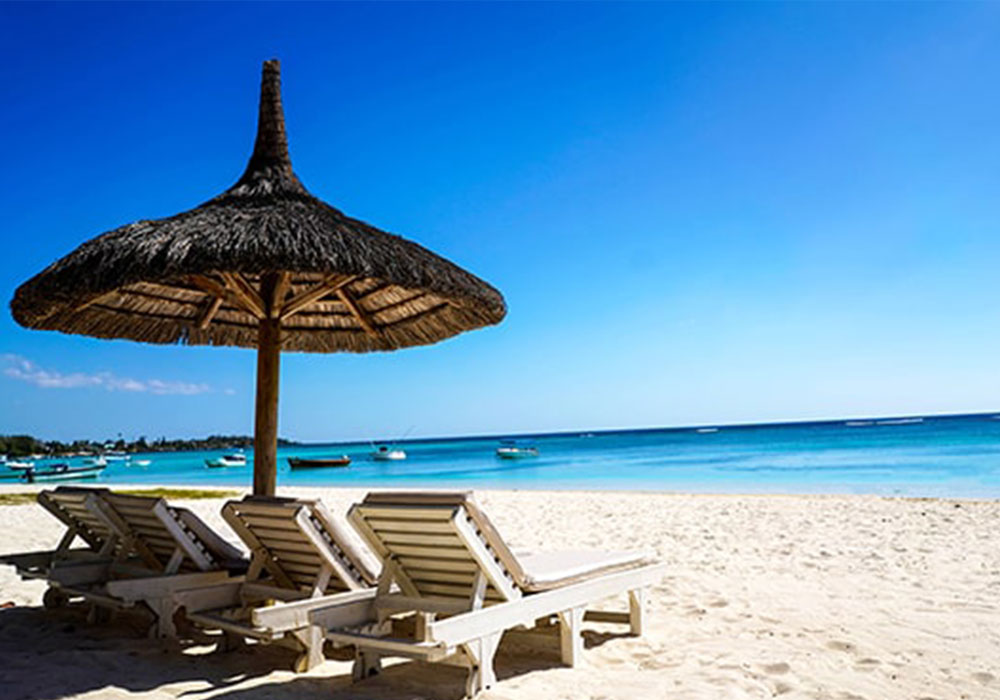Mauritius is becoming increasingly attractive to the French, both for tourism and real estate investment. This growing popularity can be attributed to several attractive factors. Despite its small size, the island boasts an exceptional living environment, picturesque landscapes, a welcoming population and an enviable geographical location in the heart of the Indian Ocean. However, what is appealing is its favorable tax regime, thanks to the Franco-Mauritian tax treaty. This blog will provide you with the keys to understanding this treaty and the benefits it offers French investors.
The Franco-Mauritian tax treaty
This convention was signed for the first time on December 11, 1980, in Port-Louis between the Government of the French Republic and the Government of Mauritius. It came into force on September 17, 1982. It was subsequently amended and consolidated by the amendment of June 23, 2011, in Port Louis. Its purpose is to eliminate double taxation on the income of a person whose sources of income are in a country other than his or her country of residence for tax purposes.
The bilateral tax treaty is considered a crucial agreement for French investors wishing to venture into real estate or business in Mauritius.
Which taxes are covered by the Franco-Mauritian tax treaty?
According to Article 2 of the Franco-Mauritian tax treaty, the taxes covered by the non-double taxation agreement are:
For France:
- Income tax
- Corporation tax
Including any withholding tax, prepayment or advance payment with respect to the foresaid taxes (Hereinafter referred to as “French tax”)
For Mauritius:
- Income tax
This agreement applies to taxes on income and on capital, including taxes levied on total income, on total capital, or on items of income or capital, including taxes on gains from the alienation of movable or immovable property, taxes on capital gains and taxes on the total amount of salaries paid by companies. This agreement also applies to taxes of an identical or similar nature, depending on changes or additions made to the tax legislation of the two respective countries.

What are the advantages for French investors?
Impôt sur la Fortune (ISF – wealth tax)
Individuals domiciled in France are subject to unlimited tax liability. All assets belonging to them, whether located in or outside France, fall within the scope of the Impôt sur la Fortune (ISF). However, international treaties may provide for exemptions for taxpayers with assets outside France.
Article 23 of the Franco-Mauritian tax treaty stipulates that: “Wealth constituted by immovable property referred to in Article 6, owned by a resident of a State and situated in the other State, may be taxed in that other State. Real estate owned in Mauritius by French tax residents is outside the scope of the ISF. Investing in real estate in Mauritius can therefore be an interesting solution for lowering your ISF tax liability, since real estate located in Mauritius will not form part of the “fortune” of French residents liable for ISF tax.
Income tax
Article 6 of the Franco-Mauritian tax treaty deals with income from immovable property. “Income derived by a resident of a State from immovable property (including income from agriculture or forestry) situated in the other State may be taxed in that other State”. Thus, income derived from the rental of real estate located in Mauritius is, by virtue of the above-mentioned tax treaty, taxable in Mauritius. Under Mauritian tax law, this income will be taxed at a rate of 15%. This rate is relatively low compared with the maximum tax bracket of 45% applied to property income in France. However, investing in real estate in Mauritius is relatively more advantageous for the French.
Capital gains tax on real estate
Article 13 of the Convention concerning capital gains stipulates that: “Gains derived by a resident of a State from the alienation of immovable property referred to in Article 6 and situated in the other State may be taxed in that other State”. Insofar as the Mauritian State does not tax capital gains on real estate, capital gains realized on the resale of real estate in Mauritius will not be taxed.
In France, capital gains are taxed at the proportional rate of 19%. In addition, they are also subject to social security contributions, which amount to a total rate of 17.2%.
Inheritance tax
Although Mauritian law does not provide for the application of inheritance tax, Mauritian real estate owned by French residents will be subject to French inheritance tax. For such property to be exempt from French inheritance tax, both the owners of the property and their heirs would have to be Mauritian residents, as in this case only the inherited French property would be taxable in France.
How do I establish my tax residence in Mauritius?
To establish tax residence in Mauritius and benefit from the many tax advantages on offer, French nationals have two main options for obtaining a permanent resident permit.

For pensioners
French retirees aged 50 or over can obtain a Mauritius residency permit by opening a local bank account with a minimum annual deposit of €34,000 from income earned outside the country. This initial permit is valid for 3 years and can be converted into a permanent residence permit later.
For individuals
French nationals acquiring property under the Property Development Scheme (PDS) automatically become permanent residents of Mauritius. All required is a minimum stay of 6 months per year on the island. This permanent residence permit extends to the purchaser, his/her spouse and dependent children for as long as they own the property in Mauritius.
Investment opportunities in Mauritius
In conclusion, the Franco-Mauritian tax treaty offers French investors a series of significant advantages when choosing to invest in real estate in Mauritius. The treaty not only eliminates double taxation on income and capital gains, but also offers attractive tax incentives, such as the exemption of capital gains on real estate in Mauritius.
By combining an exceptional living environment, picturesque landscapes and advantageous taxation, Mauritius is positioned as a prime destination for international real estate investment. For those wishing to seize this opportunity, our team at Evaco Property is ready to support you at every stage of your investment project. Explore our exclusive selection of properties at www.evacoproperty.com and begin your journey towards a successful real estate investment in Mauritius.





